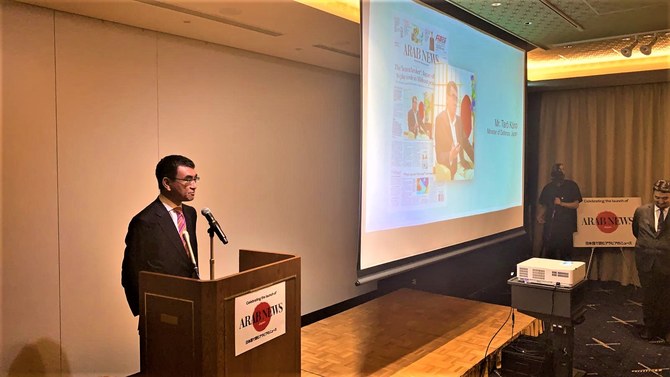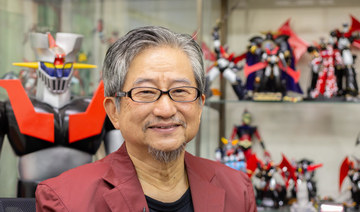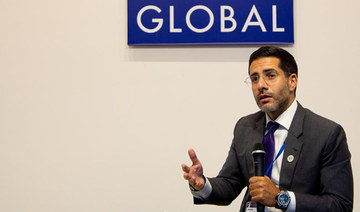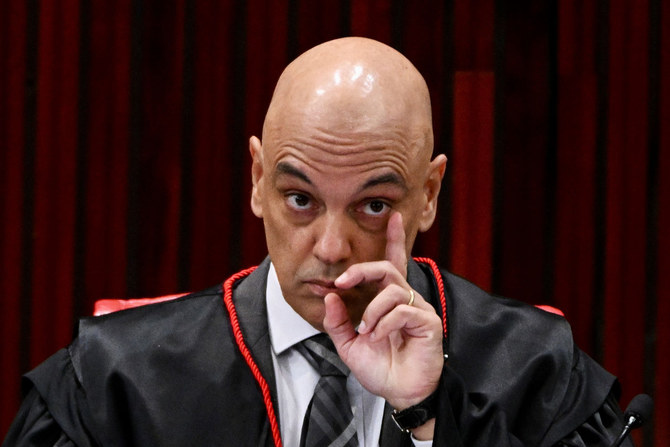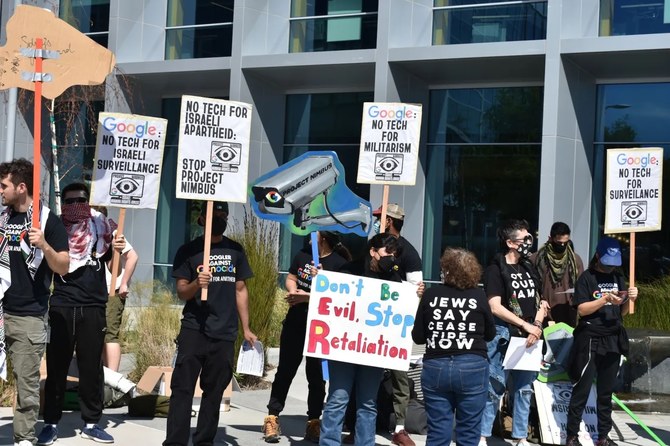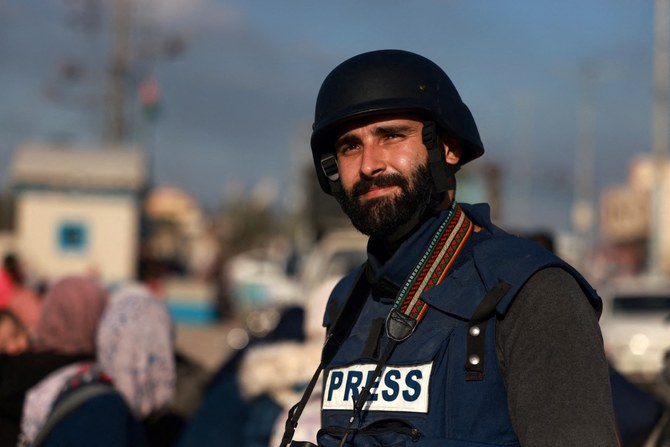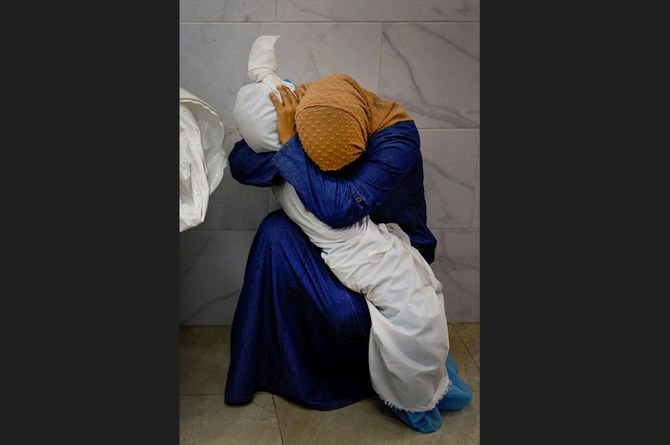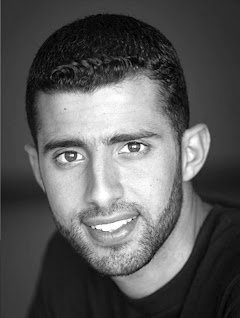TOKYO: Arab News, the Middle East’s leading English language daily, has launched an eagerly awaited Japanese-language online edition as part of its ongoing global expansion.
As a symbol of the cordial business, trading and cultural relations between the Kingdom and Japan, arabnews.jp commenced coverage to coincide with the enthronement of Emperor Naruhito in the Japanese capital.
The news website, which is available in both Japanese and English, will focus on enabling exchange of information between Japan and the Arab world in business, current affairs as well as arts and culture.
And Arab News Japan is launched pic.twitter.com/F4Zv4Jjma6
— Faisal J. Abbas (@FaisalJAbbas) October 21, 2019
Speaking at a ceremony marking the launch of Arab News Japan on Oct. 21, Taro Kono, Japan’s defense minister, said: “It will be good to have news in Japanese so many Japanese can read about the Arab world.
“I think the Middle East has a lot to offer. Yes, I saw we import a lot of oil and we export a lot of Toyota, but I think our relations need to go beyond that. Japan is racially and religiously very neutral, and we have no negative footprint in history, so we can be a good broker in conflict in the Middle East and that’s what we should be doing.
“So when I was foreign minister, I opened up in Japan new political dialogue, and that was the first time we did it in Cairo, and we are supposed to do it sometime this year for the second time, and I visited almost every single country in the Middle East except Libya, Yemen and Syria, but I guess I visited almost all the rest of the countries, and some several times.
“We share the common values, we have a high respect for the elders and we think that the family is very important values, so we stay in the east of the Asian continent and the “Middle East” in the “West” (of the continent), kind of funny, but we share the common values, and to me we are friends and I think we need to work together.
“In order to do that we need to know what people in the Middle East are actually thinking, what is happening on daily basis and we haven’t got the source for that but now Arab News is now in Japan, and they are going to start news in Japanese. And I bet they would carry news in Japan in Arabic as well, so this is a very good means to exchange the information between the middle east and Japan, so I am very much looking forward to it and this is the beginning of a new era. Our emperor has enthronement ceremony tomorrow, so I mean there can be no better way to start this endeavor. So, welcome Arab News.”
#WATCH: Arab News Japan edition is officially launched and live @ArabNewsjp...https://t.co/pNM7pLikTf pic.twitter.com/azxa6zQnfY
— Arab News Japan (@ArabNewsjp) October 21, 2019
The Japanese-language edition is the first in a foreign language – and the second under the Arab News brand following the highly successful launch of the Pakistan edition.
The content of arabnews.jp is a mix of original reporting from both the Middle East and Japan and translated feed of some of Arab News’s most important news and views.
Arab News is part of the regional publishing group Saudi Research and Marketing Group (SRMG). It has been the English newspaper of record for Saudi Arabia and the region for over 40 years.
Faisal J. Abbas, Arab News editor-in-chief had announced the Japanese-language edition project at the G1 Global conference in Tokyo on Sept. 16, describing it as “part of our more digital, more global direction.”
He had added: “We hope that the new service arabnews.jp helps bring about a better mutual understanding of both our rich cultures and become a trusted communication channel where our friends in Japan can rely on us for credible information and insightful analysis.”
LIVE: Launch of Arab News Japan at Foreign Correspondent's Club Japan in Tokyo https://t.co/WTwEl79RfJ
— Arab News Japan (@ArabNewsjp) October 21, 2019
In the Arab world, Saudi Arabia is one of Japan’s most important economic partners. A major part of Japan’s energy imports come from Saudi Arabia.
The Kingdom imports manufactured goods and electronic equipment from Japan, and is a significant destination for Japanese financial investment.
In his speech on the occasion, Majid Al-Qasabi, Saudi Arabia’s Minister for Commerce and Investment said: “We flew from Riyadh to Dubai and from Dubai to Tokyo. I am very honored to be among you here today.
“Japan is a long reliable strategic partner and friend. Since 1955, business has been great between the two countries, we appreciate all the cooperation, the partnerships and the business with the Japanese community. The kingdom of Saudi Arabia has a special relation, especially the Crown Prince of Saudi Arabia with the new Emperor.
“We hope that Japan will have a fruitful future and I would like to congratulate Arab News, this is a great opportunity, a moment in history, at least we should be present here with our friends in Japan.”
#LIVE: Legendary Japanese artist @GoNagaiWorld signing his logo for @ArabNewsjp at the launch of the Japan edition in Tokyo pic.twitter.com/lZ54ZNPvzp
— Arab News Japan (@ArabNewsjp) October 21, 2019
Also at the launch ceremony was Yuriko Koike, governor of Tokyo and the first woman ever to hold the post. “I want to congratulate Arab News on the launch of their Japanese edition,” she told the audience.
“And this is wonderful news for me in particular as I have worked to strengthen ties between Japan and the Middle East for so many years.
Koike is no stranger to the Middle East or the Arab world. She studied Arabic at the American University in Cairo, graduating in sociology, and spent five years in Cairo in the 1970s, a time she thinks of fondly.
“After college and as a journalist I had the opportunity to interview many Arab leaders, as a member of the Diet and when visiting the Middle East from time to time.
“I tried to create numerous opportunities to create mutual understanding in Japan and Arab countries.
“And since being elected as governor of Tokyo, I am always inviting many Islamic diplomats and ambassadors from Islamic countries to celebrate the Iftar during Ramadan.
“We are nine months away from the start of the 2020 Games in Tokyo, and the Tokyo Metropolitan Government is creating a welcoming environment for international tourists and of course those from the Islamic countries.
“I hope these visitors – especially those from Saudi Arabia – can visit with peace of mind and comfort, in Tokyo where tradition and innovation coexist.
“I hope Arab News will be able to act as a bridge to promote mutual understanding between Japan and Saudi Arabia and all the Middle East.”
In an exclusive interview to Arab News in July this year, Koike had said she believed Saudi Arabia was moving in the right direction, referring to women’s empowerment and the changes happening in the country under Vision 2030.
“The challenge in what is going on in Saudi Arabia is really meaningful to enrich the Saudi culture and Saudi society, to make it richer and more diverse,” she had said.
#LIVE: #SaudiArabia's Minister Of Commerce And Investment Majid Al-Qasabi speaking at the launch of @arabnewsjp in Tokyo pic.twitter.com/lpo3cP6ASg
— Arab News Japan (@ArabNewsjp) October 21, 2019
Incidentally, Saudi officials are working with their Japanese counterparts on the formal handover for the G20 leaders’ summit, which will take place in the Kingdom next year, following the highly successful event held in Osaka, Japan, in June.
At that event, Saudi Arabia’s Crown Prince Mohammed bin Salman told Shinzo Abe, the Japanese prime minister, that Japan was a country dear to the hearts of all Saudis.
“We will work together to prepare for the G20 summit 2020 in the Kingdom of Saudi Arabia,” the Crown Prince said.
For his part, Abe had praised the Kingdom’s progress in accordance with the Vision 2030 strategy.





